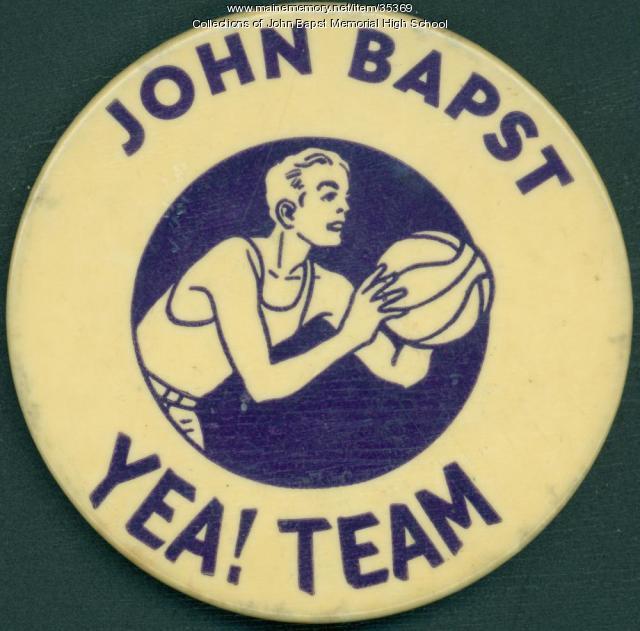Keywords: New England Bank of Maine
- Historical Items (11)
- Tax Records (0)
- Architecture & Landscape (1)
- Online Exhibits (38)
- Site Pages (46)
- My Maine Stories (2)
- Lesson Plans (0)
Online Exhibits
Your results include these online exhibits. You also can view all of the site's exhibits, view a timeline of selected events in Maine History, and learn how to create your own exhibit. See featured exhibits or create your own exhibit
Exhibit
Walter Wyman's vision to capture the power of Maine's rivers to produce electricity led to the formation of Central Maine Power Co. and to a struggle within the state over what should happen to the power produced by the state's natural resources.
Exhibit
Summer Folk: The Postcard View
Vacationers, "rusticators," or tourists began flooding into Maine in the last quarter of the 19th century. Many arrived by train or steamer. Eventually, automobiles expanded and changed the tourist trade, and some vacationers bought their own "cottages."
Exhibit
Melting snow, ice, warmer temperatures, and rain sometimes bring floods to Maine's many rivers and streams. Floods are most frequent in the spring, but can occur at any season.
Exhibit
Dressing Up, Standing Out, Fitting In
Adorning oneself to look one's "best" has varied over time, gender, economic class, and by event. Adornments suggest one's sense of identity and one's intent to stand out or fit in.
Exhibit
A Town Is Born: South Bristol, 1915
After being part of the town of Bristol for nearly 150 years, residents of South Bristol determined that their interests would be better served by becoming a separate town and they broke away from the large community of Bristol.
Exhibit
"We are growing to be somewhat cosmopolitan..." Waterville, 1911
Between 1870 and 1911, Waterville more than doubled in size, becoming a center of manufacturing, transportation, and the retail trade and offering a variety of entertainments for its residents.
Exhibit
Promoting Rockland Through a Stereopticon, 1875
Frank Crockett and photographer J.P. Armbrust took stereo views of Rockland's downtown, industry, and notable homes in the 1870s as a way to promote tourism to the town.
Exhibit
Since the establishment of the area's first licensed hotel in 1681, Portland has had a dramatic, grand and boisterous hotel tradition. The Portland hotel industry has in many ways reflected the growth and development of the city itself. As Portland grew with greater numbers of people moving through the city or calling it home, the hotel business expanded to fit the increasing demand.
Exhibit
Yarmouth's "Third Falls" provided the perfect location for papermaking -- and, soon, for producing soda pulp for making paper. At the end of the 19th century and beginning of the 20th, Yarmouth was an international leader in soda pulp production.
Exhibit
From Sewers to Skylines: William S. Edwards's 1887 Photo Album
William S. Edwards (1830-1918) was a civil engineer who worked for the City of Portland from 1876-1906. Serving as First Assistant to Chief Engineer William A. Goodwin, then to Commissioner George N. Fernald, Edwards was a fixture in City Hall for 30 consecutive years, proving indispensable throughout the terms of 15 Mayors of Portland, including all six of those held by James Phineas Baxter. Edwards made significant contributions to Portland, was an outstanding mapmaker and planner, and his works continue to benefit historians.
Exhibit
John Bapst High School was dedicated in September 1928 to meet the expanding needs of Roman Catholic education in the Bangor area. The co-educational school operated until 1980, when the diocese closed it due to decreasing enrollment. Since then, it has been a private school known as John Bapst Memorial High School.
Exhibit
Elise Fellows White: Music, Writing, and Family
From a violin prodigy in her early years to an older woman -- mother of two -- struggling financially, Skowhegan native Mary Elise Fellows White remained committed to music, writing, poetry, her extended family -- and living a life that would matter and be remembered.
Exhibit
CODE RED: Climate, Justice & Natural History Collections
Explore topics around climate change by reuniting collections from one of the nation's earliest natural history museums, the Portland Society of Natural History. The exhibition focuses on how museums collect, and the role of humans in creating changes in society, climate, and biodiversity.
Exhibit
Lincoln County through the Eastern Eye
The Penobscot Marine Museum’s photography collections include nearly 50,000 glass plate negatives of images for "real photo" postcards produced by the Eastern Illustrating and Publishing Company of Belfast. This exhibit features postcards from Lincoln County.














